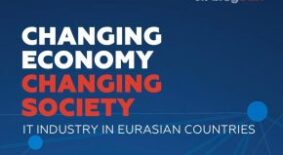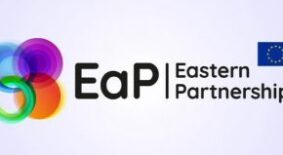DOWNLOAD Changing Economy. Changing Society report (2nd edition) PDF file The purpose of Changing Economy, Changing Society is to study trends and prospects for the development of the IT industry in Eurasian countries, as well as the degree of influence of this industry on the transformation of Eurasian society into a modern society of the Western type. In this report,
Read More
Monthly Archives March 2020
Estonian e-commerce increased by over 50%
Estonian e-commerce increased by over 50% March 30, 2020 Categories: Monitoring-GMI. Despite the e-commerce volumes constantly increasing, just a quarter of small and medium-sized Estonian enterprises (SMEs) utilize online sales channels and the situation is similar in Latvia and Lithuania, the SEB Baltic Business Outlook (BBO) survey indicated, adding that especially in the current state of emergency, e-commerce is one
Read More
StrategEast and Georgian BTU University launch partnership in developing the IT in Georgia
StrategEast President Anatoly Motkin and Georgian Business and Technology University (BTU) Rector Nino Enukidze have signed Memorandum of Understanding on collaboration between the parties on tech-education and public advocacy in Georgia.
Read More
EU prioritizes digital transformation for Eastern Partnership beyond 2020
Support for a resilient digital transformation is one of the five policy priorities highlighted by the European Commission in its proposal for the long-term policy objectives of the Eastern Partnership beyond 2020, released on 18 March.
Read More
Legislation drafted to introduce digital timber tracking system in Belarus
A presidential decree has been drafted to gradually introduce a digital system to keep track of timber and transactions with timber, BelTA learned from Press Secretary of the Belarusian Forestry Ministry Anastasia Dokuchayeva.
Read More
EU aims at increasing trade, deepening economic integration, supporting digital transformation in Eastern Partnership countries
On 18 March, the European Commission and the High Representative of the Union for Foreign Affairs and Security Policy (EU High Representative) have put forward a proposal for the long-term policy objectives of the Eastern Partnership beyond 2020. These aim at increasing trade, strengthening connectivity and deepening economic integration with Armenia, Azerbaijan, Belarus, Georgia, the Republic of Moldova and Ukraine, strengthening democratic institutions, the rule of law, environmental and climate resilience, supporting the digital transformation, and promoting fair and inclusive societies.
Read More
Estonia launches E-notar 3 platform, allowing to perform notarial procedures from distance
New E-notar 3 platform launched in February comes with a news solution allowing to perform notarial procedures from distance. This week, several Estonian embassies joined the pilot project of distant authentication making it possible to perform notarial acts from abroad, without travelling to Estonia. The first foreign missions to provide the service are Estonian embassies in Brussels, Stockholm, London and Riga – embassy in Helsinki will join the pilot slightly later.
Read More
Ukrainian fintech product Koto launched in UK
On March 2, Ukrainian fintech product Koto was launched in the UK in beta mode. It is a banking application by Fintech Band, the team of PrivatBank ex-managers Oleh Horokhovskyi and Mykhailo Rohalskyi. In Ukraine, they are most famous for creating one of the fastest-growing investment banks, monobank.
Read More
Estonia introduces the process of establishing companies just using Smart-ID
The first ever company established online using Smart-ID was today accepted by Registration Department of Tartu County Court. Previously, this was only possible using an Estonian digital ID card or mobile-ID.
Read More
EU4Digital harmonizes e-commerce between the EU and the Eastern partner countries
Electronic commerce – or eCommerce – refers to the buying and selling of goods and services from anywhere in the world through computer networks. While the EU is a single market that allows the free exchange of goods and services between member states, goods and services cannot be easily exchanged between the EU and EaP countries, due to differences in eCommerce legislation, standards and infrastructure.
Read More









